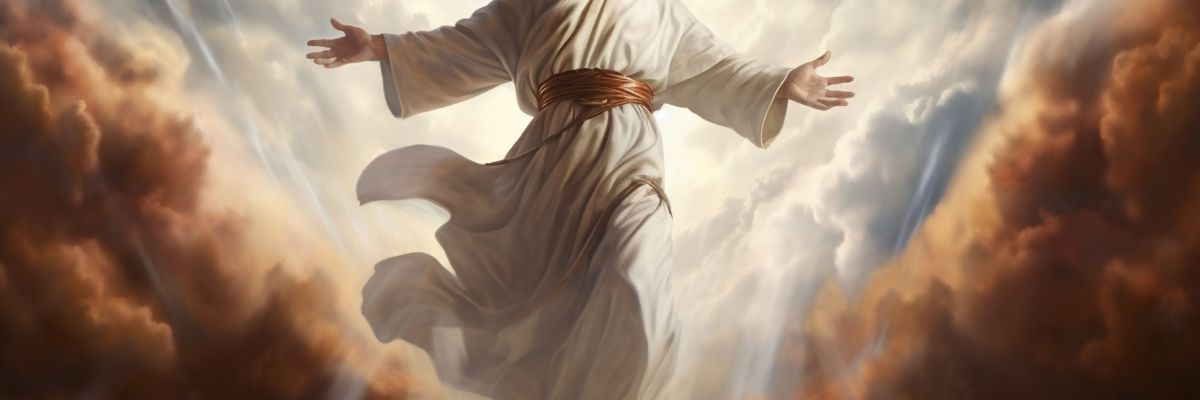
Tim Staples delves into the complex theological concept of the kenosis, the self-emptying of Jesus Christ. The discussion explores whether Jesus withheld divine attributes during His earthly life and how the hypostatic union between His divine and human natures impacted His experience.
Transcript:
Is there any evidence for Jesus withholding divine attributes?
Right. Okay. It’s not that He withholds divine attributes.
It would be more proper to say, because of course, when you’re talking about Jesus in His divine personhood, He possesses all the divine attributes in full, because He’s God. The divine nature, as well as the three divine persons, cannot. It is impossible for a divine person to somehow deny the divine attributes. That’s metaphysically absurd, because they all three, of course, are the one God and possess all the, depending upon how you number them, the 14 or 15 divine attributes. Absolutely. All right. But what we are talking about in Jesus Christ, and here we go again. We’re talking about the kenosis once again. It’s in Christ’s humanity where the second person of blessed Trinity chose to humble himself. Let me think about that. That’s infinite humiliation of God, right? In the Incarnation,
in His humanity,
He withholds from what is His right, and that is the divine glory. You see, from the instant that Christ was conceived,
He merited by nature infinitely, right? From the first human act that He performed, He merited infinitely, and He continues to merit in every act, all the way up to and through the crucifixion of our blessed Lord, right? How can He merit infinite all the time? He can because of the hypostatic union, because everything that the human nature does must be understood to have as its subject the divine person. That’s what makes it infinitely propitiatory for our salvation. But He, the second person of blessed Trinity, chose to empty himself. Why?
Because if He accepted in His human nature the full reward of even His first action, guess what? He would be glorified. He would have the gifts of impassibility and subtility and agility and glory. All of that would be fully manifested in His human nature, and so therefore He wouldn’t be able to suffer. He wouldn’t be able to die, and so forth. And so He empties Himself of that which, you know,
Catholic theologians refer to it as His divine glory. But I think when they use that language, sometimes people get confused to think somehow He emptied Himself of His divinity. And that is heresy, okay? He can’t empty Himself of His divine nature. That’s metaphysically absurd. But what He could do is not… Here, the second person of blessed Trinity doesn’t permit the fullness of the glory that He has a right to, because He merited it, to be manifest. Why? So He could suffer and die for our sins, my friend. And you know, Cy and I were talking during the break of how if you look at Matthew 17 verses 1 through 3 in Luke’s version, in Luke chapter 17 verses 31 through about 35 there, and the transfiguration, what happens? He’s transfigured before Peter, James, and John. What is He doing? He’s manifesting what is His right, the fullness of the glory that awaits not only Him, but all of us. Amen. If we are faithful unto death, we will be glorified together with Him, says Paul in Romans chapter 8 verse 17.
We will be glorified together with Him if we suffer with Him in order to get there, right Cy? Well, Jesus, because He had it by right, He could manifest it anytime He wanted to, and He did. He gave them. Peter talks about this in 2 Peter chapter 1. Peter talks about how they saw His glory, and they’re talking about the transfiguration. Okay, so the point is, though, that Jesus, at every moment, He chose. This is why Jesus said, “Don’t you know I could snap my…” He didn’t say, “Snap my fingers.” I could call my Heavenly Father, and He would send a legion of angels and rescue me. But how would the Scriptures be fulfilled, right? In fact, He didn’t even need to call on the angels. He could do it Himself, you know. Jesus could, right? But what? He says, “How would the Scriptures be fulfilled?” Every instant. This is an important point to remember here.
When Jesus said in John chapter 10 verse 18, one of the most beautiful Johannine verses anywhere, “Think not that you take my life. I give it.” Right? “I give it as a ransom for many.” “I give it.” Why? Because nobody takes his life. He gives it. He could stop the whole carousel anytime he wants to. But there’s only one thing that keeps him on the cross, and that’s love.
The free choice of Him to continue to empty Himself for our salvation.



